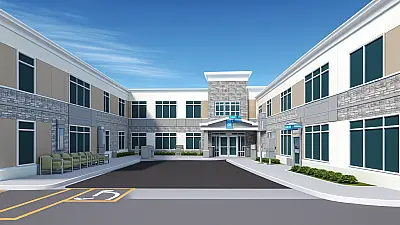EVERETT, PA - A recent complaint investigation at Pennknoll Village revealed that the facility's quality assurance and performance improvement committee failed to effectively correct ongoing problems with resident care plan management, despite previous violations and corrective action plans.

Ineffective Quality Oversight System
The January 2025 inspection found that Pennknoll Village's Quality Assurance and Performance Improvement (QAPI) committee was not functioning properly to address deficient practices related to revising and updating resident care plans. This represents a critical failure in the facility's internal monitoring system, which is designed to identify problems and implement solutions to protect resident care.
QAPI committees serve as the cornerstone of nursing home quality management, bringing together interdisciplinary teams to analyze care patterns, identify problems, and develop systematic solutions. When these committees fail to function effectively, facilities lose their primary mechanism for continuous improvement and resident protection.
The inspection revealed that despite implementing a plan of correction following a February 2024 survey that cited quality of care deficiencies, the facility's QAPI committee had not successfully resolved the underlying issues with care plan management.
Pattern of Unresolved Care Plan Problems
The current violations stem from the facility's inability to correct deficiencies first identified nearly a year earlier. Following the February 23, 2024 survey, Pennknoll Village developed a corrective action plan that included conducting regular audits and reporting audit results to the QAPI committee for review and action.
However, the January 2025 investigation found that these corrective measures had not achieved their intended purpose. The persistence of care plan deficiencies indicates that the facility's audit system, QAPI oversight, or implementation of corrective actions - or all three - were inadequate.
Care plans serve as roadmaps for each resident's individualized treatment and daily care. When these plans are not properly revised and updated, residents may receive inappropriate care, miss necessary treatments, or experience declining health outcomes. Regular updating ensures that care reflects current medical conditions, physician orders, and changing needs.
Medical Significance of Care Plan Management
Proper care plan management is essential for resident safety and quality of life in nursing facilities. Care plans must be living documents that evolve with residents' changing medical conditions, functional abilities, and treatment requirements. When facilities fail to maintain current, accurate care plans, several serious consequences can occur.
Residents may receive outdated treatments that no longer match their medical needs, potentially causing harm or preventing appropriate care. Nursing staff rely on care plans to guide daily care decisions, medication administration, and monitoring protocols. Inaccurate or outdated plans can lead to medication errors, missed treatments, or failure to recognize changes in condition.
Additionally, care plans coordinate communication between different healthcare providers, ensuring continuity of care across shifts and departments. When these plans are not properly maintained, this coordination breaks down, potentially compromising resident outcomes.
Industry Standards for Quality Improvement
Federal regulations require nursing homes to maintain effective QAPI programs that systematically identify, analyze, and address quality issues. These programs must include regular data collection, trend analysis, and implementation of evidence-based interventions to improve care outcomes.
The QAPI committee should include representation from administration, nursing, dietary, activities, and other key departments to ensure comprehensive oversight. The committee must meet regularly, review performance data, investigate quality concerns, and develop action plans with measurable outcomes and timelines.
When facilities identify deficiencies through internal audits or external surveys, their QAPI programs should implement robust corrective actions that address root causes rather than just surface symptoms. The persistence of similar violations suggests that Pennknoll Village's quality improvement processes may need fundamental restructuring rather than minor adjustments.
Regulatory Response and Ongoing Monitoring
The citation of ongoing care plan deficiencies despite previous corrective action plans indicates that state surveyors will likely require more intensive oversight and monitoring of Pennknoll Village's quality improvement efforts. Facilities that demonstrate patterns of unresolved deficiencies may face enhanced scrutiny, more frequent inspections, or additional regulatory sanctions.
The facility will be required to submit a new plan of correction addressing not only the specific care plan deficiencies but also the underlying failures in their QAPI system. This plan must demonstrate how the facility will strengthen its quality oversight processes to prevent similar problems in the future.
Additional Issues Identified
The inspection focused specifically on the facility's quality assurance failures related to care plan management and compliance with physician orders, building on deficiencies first identified in February 2024.
The investigation's findings highlight the critical importance of effective quality improvement systems in nursing homes and the potential consequences when these systems fail to function as intended to protect resident welfare.
Full Inspection Report
The details above represent a summary of key findings. View the complete inspection report for Pennknoll Village from 2025-01-15 including all violations, facility responses, and corrective action plans.
💬 Join the Discussion
Comments are moderated. Please keep discussions respectful and relevant to nursing home care quality.